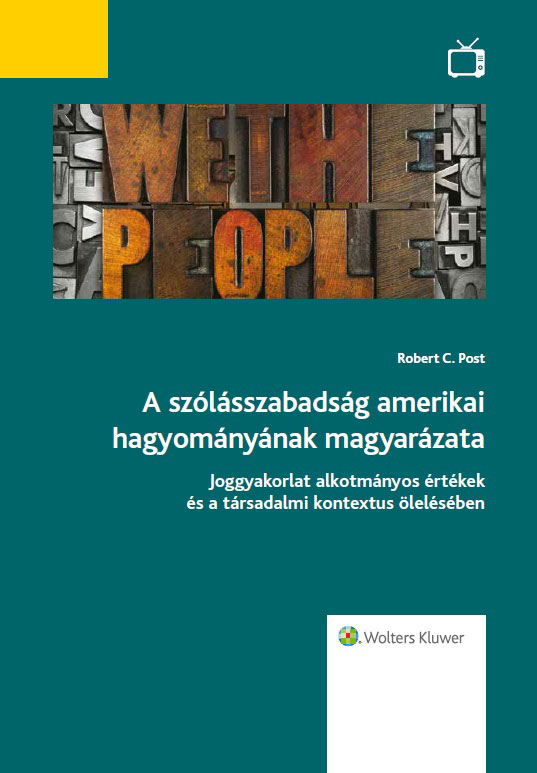Robert C. Post, An Interpretation of the American History of Freedom of Speech
An outstanding and influential figure in the literature on freedom of expression, Robert C. Post has turned from the investigation of specific phenomena associated with the freedom of speech to focus his attention on the comprehensive theoretical issues of this area of the law and has formulated highly original answers resulting in a coherent whole. While interpreting American tradition and jurisprudence, Professor Post expounds certain decisive aspects of the legal thinking on freedom of expression, which are essential for European analysts and readers too.
 Professor Post’s oeuvre is transformative: he proves with great persuasiveness that we will never locate the key to a coherent doctrine of freedom of speech by searching for it hidden inside. Even during legal formulation of practice, we must lift our heads and look beyond our doctrinal walls. Firstly, we must identify and then remember at all times our constitutional values and, secondly, we must understand and analyze the social reality around us, in which our legislation is to enter with the power to shape it.
Professor Post’s oeuvre is transformative: he proves with great persuasiveness that we will never locate the key to a coherent doctrine of freedom of speech by searching for it hidden inside. Even during legal formulation of practice, we must lift our heads and look beyond our doctrinal walls. Firstly, we must identify and then remember at all times our constitutional values and, secondly, we must understand and analyze the social reality around us, in which our legislation is to enter with the power to shape it.
Although Professor Post’s direct aim is to interpret the American doctrine specifically, there are several reasons why it is important that these analyses are now widely available to a Hungarian readership. It goes beyond the fact that the Hungarian legal system (albeit embedded in its own environment but still) seeks inspiration from time to time from the approaches to freedom of expression in the United States, and even beyond the general benefits afforded by the study of a different legal system (which also happens to be much more sophisticated in its interpretation of freedom of speech). It is notable that as the role of major technology firms (search engines, Internet platform providers, social media sites, web shops etc.) becomes increasingly indispensable, the impact of the US First Amendment is felt ever more directly globally. Besides the fact that these firms are difficult to litigate against at locations far away from their places of domicile, their identity is also interwoven with the American protection of freedom of expression; in fact, some authors claim that this protective umbrella has played an important role in their rise.
This volume is different from customary translations of foreign works, as it has been produced for this publication and lacks an original English-language version. Working with the editors of this volume Professor Post has selected the essays to give a general understanding of his work on the subject. I am convinced that Readers will be enriched by perusing this volume, in a number of ways: while immersing themselves in the study of freedom of expression in the United States, they will not only learn about American jurisprudence but also find criteria that are essential for interpreting and analyzing our own Hungarian doctrine. I do not believe I am wrong to suspect that not only the editors but the author especially hoped that readers of this volume would arrive at a more complete and insightful view of the legal capturing of social communication.
The book is available on the publisher’s website.